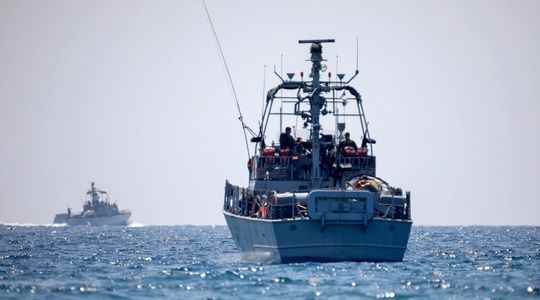Two countries technically at war, who are fighting over a maritime zone a priori rich in gas resources: in short, the ideal recipe for an escalation. The situation is all the more explosive between Israel and Lebanon as the latter is going through the worst economic crisis in its history and sees potential offshore deposits as its lifeline. To this scenario is added a militia (Hezbollah) armed and financed by a third country (Iran), determined to play one-upmanship on a subject which goes far beyond the interests of Lebanon.
It was enough for a hydrocarbon production platform, operating on behalf of the Jewish state, to arrive on June 5 near the Karish gas field, in the eastern Mediterranean, for the fuse to light. Although the event was foreseen (this floating unit was built especially for the exploitation of this field by Israel), it nevertheless confronted Lebanon with its contradictions: the Karish field is partly located in a maritime zone that the country of the Cedar could claim, except that it never did it officially.
Lebanon only claims an area of 860 square kilometres. But military and civilian experts consider that under international law, Beirut could claim an additional 1,430 square kilometers. To this end, Lebanon began informal negotiations at the end of 2020, which had no effect, except to push the Israeli side to withdraw. The country of the Cedars has however not changed its official position, the authorities preferring to maintain the vagueness so as not to worsen their relationship with the United States, which plays the role of mediator on this file. Opponents of the President of the Republic, Michel Aoun, even accuse him of moderating his position on this file in order to obtain a gesture from the Americans, who placed his son-in-law, Gebran Bassil, under sanctions in November 2020!
“The tension is permanent”
The Lebanese position may be incoherent, but that did not prevent the authorities from denouncing in unison the arrival of the floating unit, perceived as “a provocation and a hostile act”. The various parties do not want to give the impression of ceding ground to Israel after having presented the exploitation of the gas fields as the solution to all the problems facing the country. They are all the less inclined to do so since the all-powerful Hezbollah is blowing hot and cold on this issue. The secretary general of the party, Hassan Nasrallah, indicated on June 9 that his organization does not “meddle in the negotiations” which are the exclusive responsibility of the state. But he at the same time assured that “the resistance could prevent the enemy from extracting oil and gas from the Karish field”, adding that he did not “want war, but do not fear it”. These declarations sowed a wind of panic among the population, among whom the memory of the lightning war of 2006 between Hezbollah and Israel is still fresh.
An operation by the pro-Iranian militia against the platform seems unlikely for the moment. Israel has already announced that such an action would be considered a declaration of war. “I don’t think a war against Israel is looming, but the tension is permanent”, deciphers Fayçal Abdel Sater, an analyst close to Hezbollah.
The escalation could in any case have made it possible to relaunch the negotiations. The American mediator, Amos Hochstein, went to Lebanon on June 14 to ease tensions. For the first time since the beginning of the negotiations, the Lebanese authorities have agreed on a unique position which consists in claiming a slightly larger area, including the entire Cana gas field (see map). “This is the first time that all the protagonists get along,” said an authorized source within the presidential palace. In exchange for Cana, the Lebanese would give up the Karish field.
This proposal, which did not seem to displease the American mediator, is however not unanimous in Beirut. The thirteen deputies from the ranks of the protest, recently elected to Parliament, call on the Lebanese representatives to officially claim the largest possible area. “Public opinion wants it, it’s our right and we must defend it,” said Laury Haytayan, an expert in governance in the hydrocarbons sector and general coordinator of the opposition party Taqaddom. Although legitimate in terms of international law, this position has divided the parties of the protest, some believing that it will play into the hands of Hezbollah.
